The JMEC Wawa Aba Youth Collaborative
The Wawa Aba Adinkra symbol, meaning "seed of the wawa tree," signifies hardiness, toughness, and perseverance. It is inspired by the strength and durability of the wawa tree's seed, known for its hardness.
The Wawa Aba Youth (WAY) Collaborative at the Jerome McFadden Educational Center aims to provide youth with the tools to become tenacious, well-informed, and active advocates for themselves and their communities, while simultaneously fostering a love for their heritage and cultural identity. By knowing WHO they are, youth collaborators are equipped to bridge racial divides, build community, and address disparities in wealth, health, and incarceration.
In addition to working with youth throughout the community, JMEC WAY Collaborative works with community-based organizations to increase services provided to youth with special needs, shifting focus from mental health to behavioral health, addressing the increased number of youth with special needs that are incarcerated.


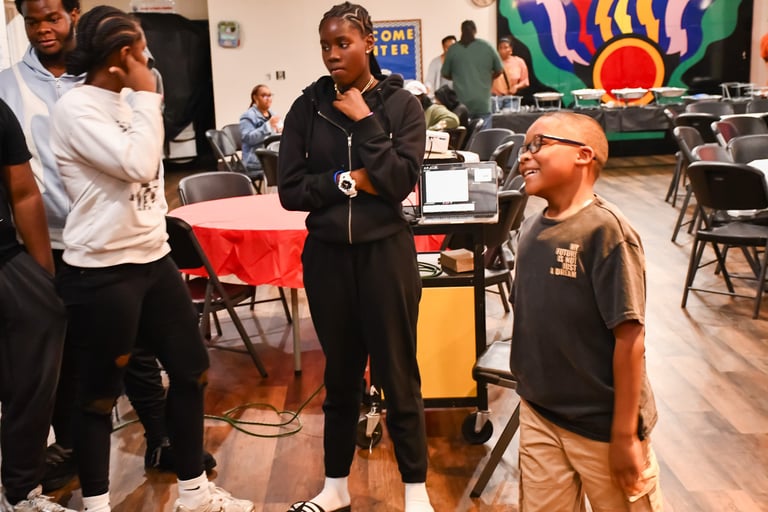

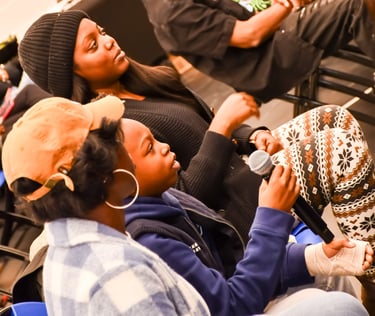

JMEC WAY Collaborative Summer Program:
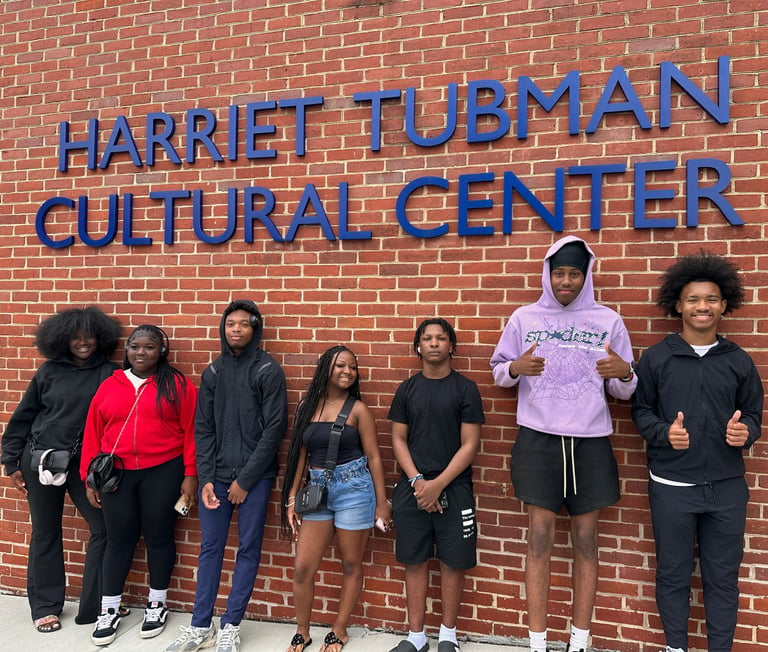

During Summer 2025, JMEC WAY Collaborative had the opportunity to partner with No Struggle No Success, Inc.
Through this collaboration, JMEC facilitated community advocacy sessions, using our evidenced-based curriculum. Youth conducted research on several issues that plague Baltimore, from blight to food deserts.
At the end of the summer, youth created presentations that addressed the issues they researched, giving the youth the insight and the tools to address these issues at a grassroots level.
Additionally, the youth visited the Harriet Tubman Cultural Center in Howard County, where they were able to see the contributions of Black Marylanders, as well as meet some of the Class of 1949!
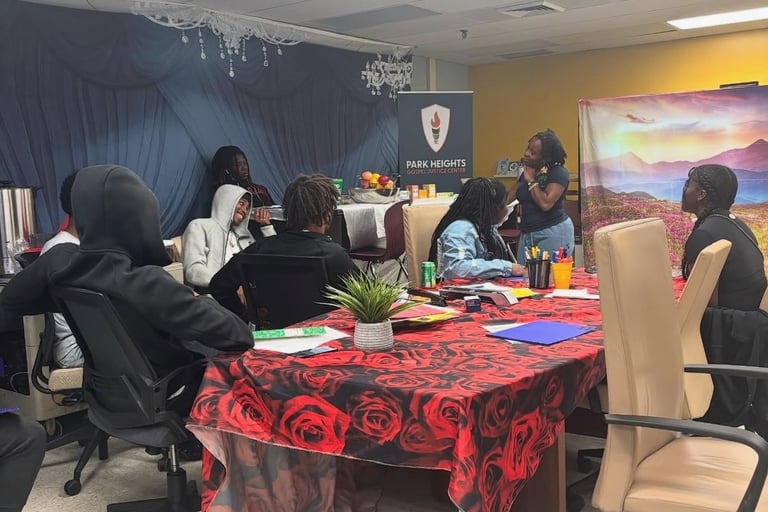

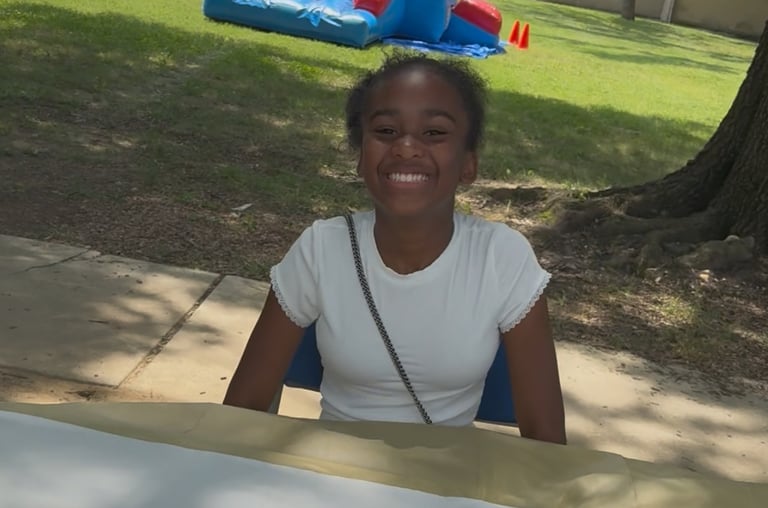

The Strategic Disruptor Initiative
The Strategic Disruptor Initiative (SDI) at the Jerome McFadden Educational Center, LLC aims to bring together diverse community members—youth, young adults, adults, and older adults—to engage in meaningful, healthy discussions and activities that address critical issues such as community engagement, advocacy, juvenile justice, racism, and allyship. Through quarterly events that blend educational opportunities with interactive and practical learning, the program will equip individuals with the tools they need to create positive change in their communities.
Each event will include partnerships with local community-based organizations, providing valuable resources to attendees while fostering a sense of unity and collective responsibility. By offering a variety of engaging events, the program aims to create a space where participants can learn, discuss, and act together for a more inclusive, sustainable community.
In addition to our quarterly community events, we host a quarterly "One Mic Speaker Series", where we have dope conversations with radical community leaders. Conversations will be posted on our Youtube Channel.
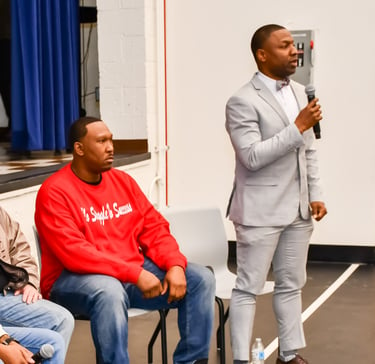

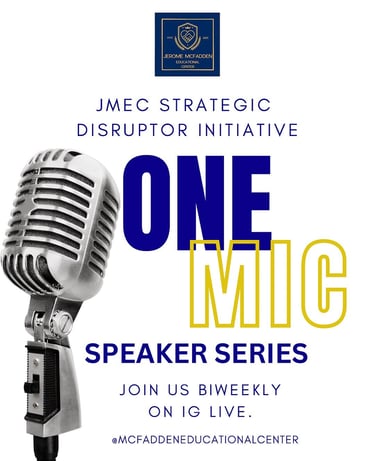



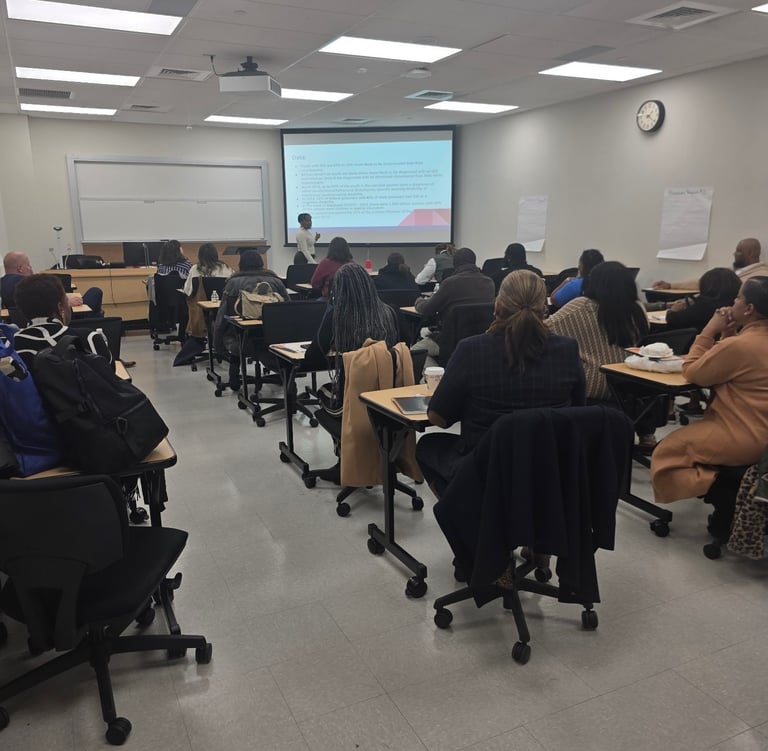

The JMEC Training Institute
The Jerome McFadden Educational Center Training Institute (JMECTI) offers high-quality, evidence-based training to professionals and lay people on issues surrounding intellectual and developmental disabilities (IDD), learning disabilities, special needs, and trauma-informed care, along with the intersectionality of race, socioeconomic status, and youth involvement in the carceral system. Our purpose is to provide practical knowledge and skills that support better outcomes for individuals with disabilities and trauma histories, empowering professionals, families, and communities to create inclusive, compassionate, and effective care environments.
The institute's trainings are designed to promote awareness, build capacity, and improve the ability of individuals and organizations to provide the highest quality care, education, and services. Trainings also address the importance of cultural competence and sensitivity, ensuring that professionals and communities have the tools needed to work with diverse populations.
